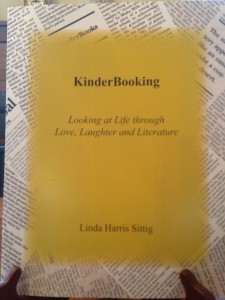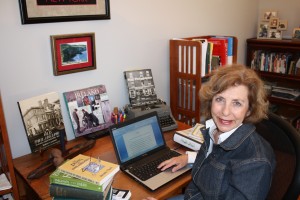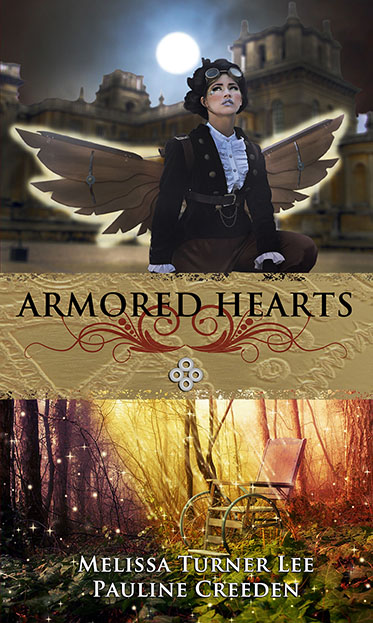My husband will be the first to tell you that I’m a critic any time we go to the movies. In his words, I “overanalyze everything.” But I didn’t go into this movie trying to be negative. And keep in mind, I’m critiquing this film based on a book I read and teach almost yearly. In fact, the novel ranks among my favorite. I taught this novel earlier this year, and my students enjoyed the novel and have been excited since then for the release of the film. Many of my students saw the film a week before I did, and the feedback I received on it was lukewarm. There were even some students who said they liked the version we watched in class (2001) better. Still, I kept an open mind. After all, what do students know, right?
More than you would think.
As a stand-alone movie, it wasn’t all that bad. It would certainly give the audience a basic understanding of Gatsby’s life and character. But it was a condensed, over-simplified version. The acting was shallow. None of the characters had souls. It would have been better to have chosen no-name actors who could actually portray the characters than big names that seemed terribly flat in their roles. There were certainly some things the film did well, but there was plenty of untapped potential. I also want to note that I enjoyed Luhrmann’s other two films, Romeo and Juliet and Moulin Rouge and was terribly disappointed with this film by comparison.
What amazes me about film is the language of film and how it differs from the language of novels. Films can use juxtaposition of images, color, and sound to create what a written page cannot—except in the mind of the reader, which will vary each time someone opens the book. That said, this movie failed in harnessing the true potential of film. Luhrmann basically took every tool a filmmaker has and put them on the screen—all at once. Simply put, it was dizzying and disorienting.
I was shocked in the beginning to find Nick Carraway, the narrator, writing from some type of rehab or therapeutic facility (an asylum, I think), where he is being treated for alcoholism and depression. In the novel, he gets fed up with the corruption on the East Coast and is actually telling the story from the Midwest, where he grew up. To me, this matters because the novel indicts society—specifically the culture of the East Coast—while the movie makes it seem like the fault lies primarily with Nick’s inability to cope with what he encountered, taking some of the indictment away from corrupt society. Nick isn’t supposed to be weak—society is supposed to be terribly corrupt. This change was a little hard to swallow being in the first scene. It reminded me more of the frame story used in The Catcher in the Rye, a novel I dislike because of how whiny Holden Caulfield is (though I do appreciate the novel in its historical context). To me, Nick and Holden are not the same personality. Holden is truly troubled. Nick has just been pushed beyond his limit by corruption and has retreated to the wholesome middle of the country. I turned to my husband during this first scene and said “I immediately object.” It was a visceral reaction. This is not the Nick I know. I later read in an interview that this choice was made in the film to give Nick a reason to write about Gatsby and to use Fitzgerald’s beautiful language in the film. His doctor tells him to write as a way of purging his thoughts. Lame. Certainly other reasons could have justified Nick writing—even as an old man—from his calm home in the Midwest. In the novel, we certainly have the impression that Nick has had plenty of time to reflect on the story he’s telling, and this would certainly justify the film’s use of Fitzgerald’s original, rich, and beautiful text. Why does Nick have to be in an asylum?
After that initial shock, I felt like the first half of the movie had ADHD. The volume—and I mean the metaphorical volume, not the actual sound volume—of the first half of the movie was cranked up all the way. (I did not see the movie in 3D. Thinking about it now, I don’t think I could have handled any more dizzying details). In fact, after the first party scene, the movie was so obnoxious to me that I actually felt like leaving. My students’ main complaint was about the music, and I see what they meant. The beautiful, soulful music of the Roaring Twenties was superimposed with modern hip-hop and rap music. This did not work. It made the scenes laughable. Paradoxically, the overindulgence of the film during these party scenes actually detracted from a viewer’s appreciation of the overindulgence of the time period. Sometimes, less is more. BIG scenes like the party scene are only big if they’re used sparingly. In this film, they were not.
There is a scene in the book—and remember, the book takes place in the 1920s. There is a carload of affluent African Americans being driven by a white driver. Nick (in the book) sees this and reflects that in New York, anything is possible. This helps emphasize the theme of the American Dream (and prepare the reader for the corruption of that dream, as Gatsby pushes its limits, and the corruption of that dream as those who work hard largely fail to achieve it). This same scene in the film had the carload dancing to music with lyrics something like “fo shizzle my nizzle” or something like that. Really? I actually laughed out loud in the theatre at this point. It was so ridiculous. The music of today really doesn’t capture the quality of the jazz age, and I honestly have no idea what Luhrmann was thinking here. It should be noted that Jay-Z was a producer of this film, and it seems like some of the pieces were included simply because someone thought they sounded cool. It was nothing like the music included in Moulin Rouge, in which the songs actually seemed integral to the plot.
During these party scenes, the film should have slowed down, focusing on individual characters and their actions. There were so many details from the book that, even if included in the film, were lost because of a dissonant mix of modern and jazz-age music (yes, playing at the same time), flashy dancing, fast cutting, and confetti flying all over the place. It was too excessive to show the excessiveness of the time period. Certainly, a more limited selection of cinematic techniques could have been used to show the overindulgence of the time. As it was, it felt like a film student who has just learned how to use all the special effects available and simply decides to use them all at once. Puke.
Speaking of focusing on individual characters, the actors playing the main characters all lacked souls. Nick Carraway’s character seemed weak and childish. Gatsby’s character, though meant to be a confused and conflicted person, lacked the special spark that made him admirable in Nick’s eyes despite all his faults. He only sort of came to life when he finally got together with Daisy. Ironically, in the book this is just where Nick notes that Gatsby seems to be fading as he (subconsciously) notices faults in his idealized version of Daisy. Jordan lacked any kind of depth, and there was nothing about her that would make Nick fall in love with her (albeit briefly), though this whole relationship was largely overlooked in the movie. Tom was a jerk, of course, but I didn’t really hate him. He seemed too kind and not nearly arrogant enough. Someone should have punched the actor in the head a couple times to make him angrier during the filming. Meyer Wolfsheim was a shadow of himself. He had no soul—none of the depth of the original character who, despite his maliciousness, actually has some human sympathy deep within. The film version of Meyer was flat and shallow. Most disappointing of all was Daisy. In the book, Daisy is an incredibly complex character. She’s torn, knowing she’s a trophy wife but wanting more and not quite knowing how and whether to acknowledge her conflicting emotions. She wishes that her daughter would be a beautiful fool so that she’ll be too stupid to realize how unhappy the world can be for a woman. And yet she also has a shallowness to her that allows her to overlook all of Tom’s faults in exchange for the security his money offers her. In the book, I just wanted to shake her. None of these complexities came out in the film version. The actress playing Daisy was beautiful and had nice eyes. And that was about it. She recited important lines from the book lifelessly.
Any characterization that came out in the film was the result of the director using lines of Fitzgerald’s original text to explain how we’re supposed to be feeling about them. And if that’s the case, why not just read the book?
The actress who played Myrtle did a decent job, but she wasn’t given enough screen time or depth as a character. The same goes for her husband Wilson, who if anything was just a bit too strong and lively for his role.
There were two characters I felt actually had souls. They were both minor. One was the jazz musician playing on the fire escape while Nick was at the party at Myrtle’s apartment. The other was the cab driver who took Nick and Jordan home one evening. They had souls and depth for the few seconds they appeared on screen. The cab driver could have done a much better job playing Meyer Wolfsheim. Other than that, the film was soulless. Once again, I wish the film would have used no-name actors who have talent than big-names who didn’t seem hungry enough for success to capture the essence of their characters. Spiderman, Nick Carraway. Same difference, right?
The visuals in the film disappointed me as well. Luhrmann could have done much more. I liked how he captured the fluttering of the white curtains when Nick first meets Daisy and Jordan. He also did well showing just how industrial the Valley of Ashes was, but it largely went downhill from there. Just like the party scenes, much of the imagery in the film was overdone so obviously that it became a nuisance. The green light at the end of the dock was subtle in the book. It was visually referenced—and discussed by the characters—a nauseating number of times in the film. A theme in the film is the danger of cars, which mirrors the carelessness of the East Coast’s fast-paced lifestyle. Luhrmann overemphasized this by having the main characters drive in ridiculously dangerous ways throughout the film. I felt like I was watching Gone in Sixty Seconds or one of those car movies. All action, no plot.
The second half of the film was less disappointing, but still disappointing. It slowed down and focused on individual characters, so the dizzying craziness of the first half of the film largely dissipated. But even here, the film remained shallow, making it a love story (and a shallow one at that) rather than a look at the American Dream and the nature of motivation and corruption. Here, film techniques could have helped. The film attempted to show the reason Gatsby became so obsessed with Daisy. But Fitzgerald writes this scene so perfectly that the film fell short. More visuals could have been used to show exactly how Gatsby imprinted Daisy with all his hopes and dreams and definitions of success. More time with Dan Cody would have shown how Gatsby developed as a young man. The fact that Gatsby’s father didn’t appear at the end of the novel only reinforced the shallowness of Gatsby as a character.
In fact, by the end of the movie, I didn’t care about any of the characters. I wasn’t mad at Daisy for not caring. I wasn’t mad at Tom for getting away with it once again. I wasn’t frustrated for Nick. I didn’t care that no one came to the funeral. I wasn’t sad for Gatsby because he simply never approached becoming the tragic hero he is in the book. And Nick was so lame I wished Wilson would have just put him out of his misery, too. In any great work, the worst thing a viewer or reader can be is apathetic. But that’s how I left the theatre. Apathetic.
In short, the film was shallow, superficial, and soulless. My advice? Save your money and see Star Trek instead.
 received some great reviews. The Tallenmere series has been likened to Terry Goodkind’s ‘Sword of Truth’ series, but is probably closer to a spicy cross between Tolkien and Mercedes Lackey. Mysti’s other writings have appeared in the anthologies Hearts of Tomorrow, Christmas Lites, and Christmas Lites II. Her flash fiction has appeared on the online magazine EveryDayFiction. She has also served as a class mentor in Writers Village University’s six week free course, F2K. Mysti reviews books for SQ Magazine, an online specfic publication, and is the proud owner of Unwritten, a blog voted #3 for eCollegeFinder’s Top Writing Blogs award. She resides in Buckner, KY with her husband and three children. I look forward to reviewing her book later this summer.
received some great reviews. The Tallenmere series has been likened to Terry Goodkind’s ‘Sword of Truth’ series, but is probably closer to a spicy cross between Tolkien and Mercedes Lackey. Mysti’s other writings have appeared in the anthologies Hearts of Tomorrow, Christmas Lites, and Christmas Lites II. Her flash fiction has appeared on the online magazine EveryDayFiction. She has also served as a class mentor in Writers Village University’s six week free course, F2K. Mysti reviews books for SQ Magazine, an online specfic publication, and is the proud owner of Unwritten, a blog voted #3 for eCollegeFinder’s Top Writing Blogs award. She resides in Buckner, KY with her husband and three children. I look forward to reviewing her book later this summer. Who is your favorite character in your book, and why?
Who is your favorite character in your book, and why? In the end, Walter makes a stupid decision. He takes the money and invests it with one of his “partners,” a man no one else in the family trusts. The man runs off with the money, leaving the family penniless. They have the chance to sell their house in the all-white neighborhood for a profit—the whites in the neighborhood do not want a black family to move in—or move into the neighborhood and work hard to collectively make enough money to pay off the house. Mama leaves it all up to Walter, who is ready to sell out in exchange for the money.
In the end, Walter makes a stupid decision. He takes the money and invests it with one of his “partners,” a man no one else in the family trusts. The man runs off with the money, leaving the family penniless. They have the chance to sell their house in the all-white neighborhood for a profit—the whites in the neighborhood do not want a black family to move in—or move into the neighborhood and work hard to collectively make enough money to pay off the house. Mama leaves it all up to Walter, who is ready to sell out in exchange for the money.

 flying through the air to catch her. Of course, he kept his mobility a secret except for his “aunt” (his grandfather’s daughter, though she is younger than Gareth—the result of an affair), Tabitha.
flying through the air to catch her. Of course, he kept his mobility a secret except for his “aunt” (his grandfather’s daughter, though she is younger than Gareth—the result of an affair), Tabitha.



